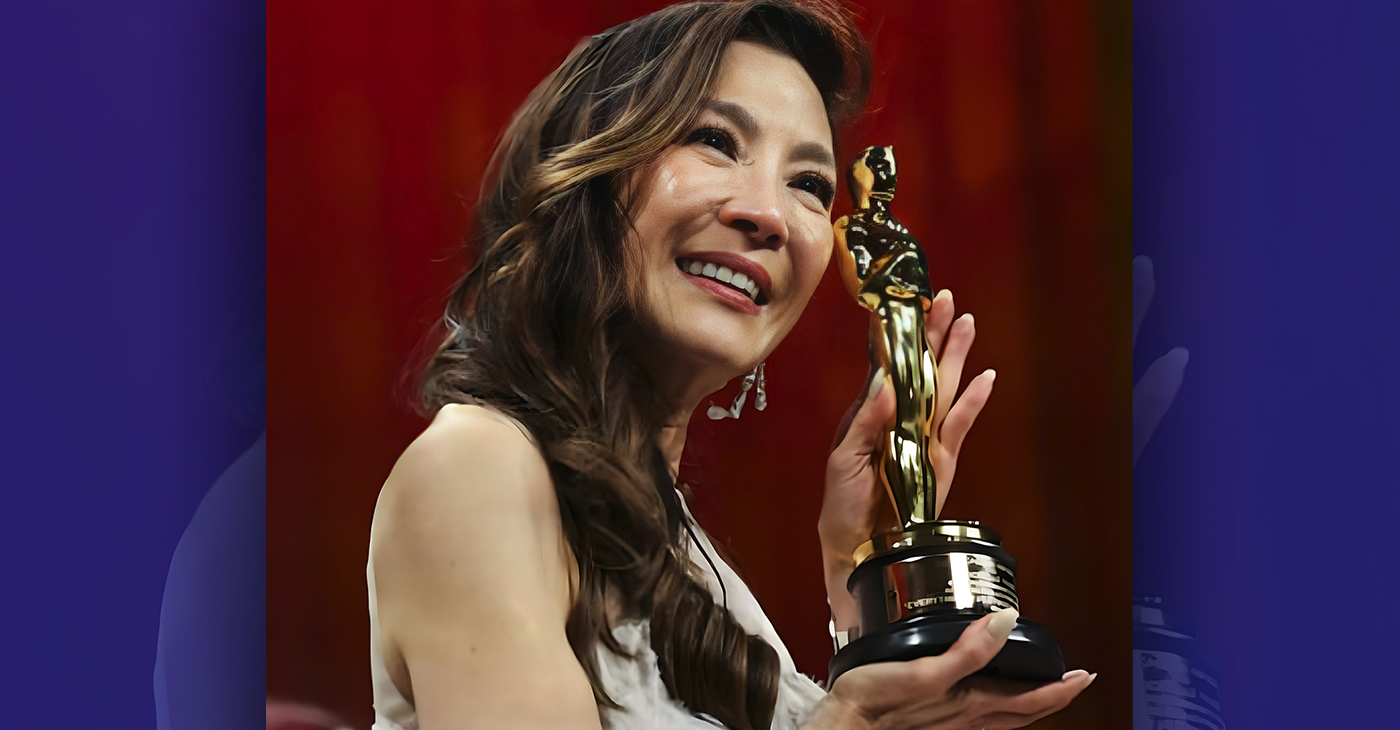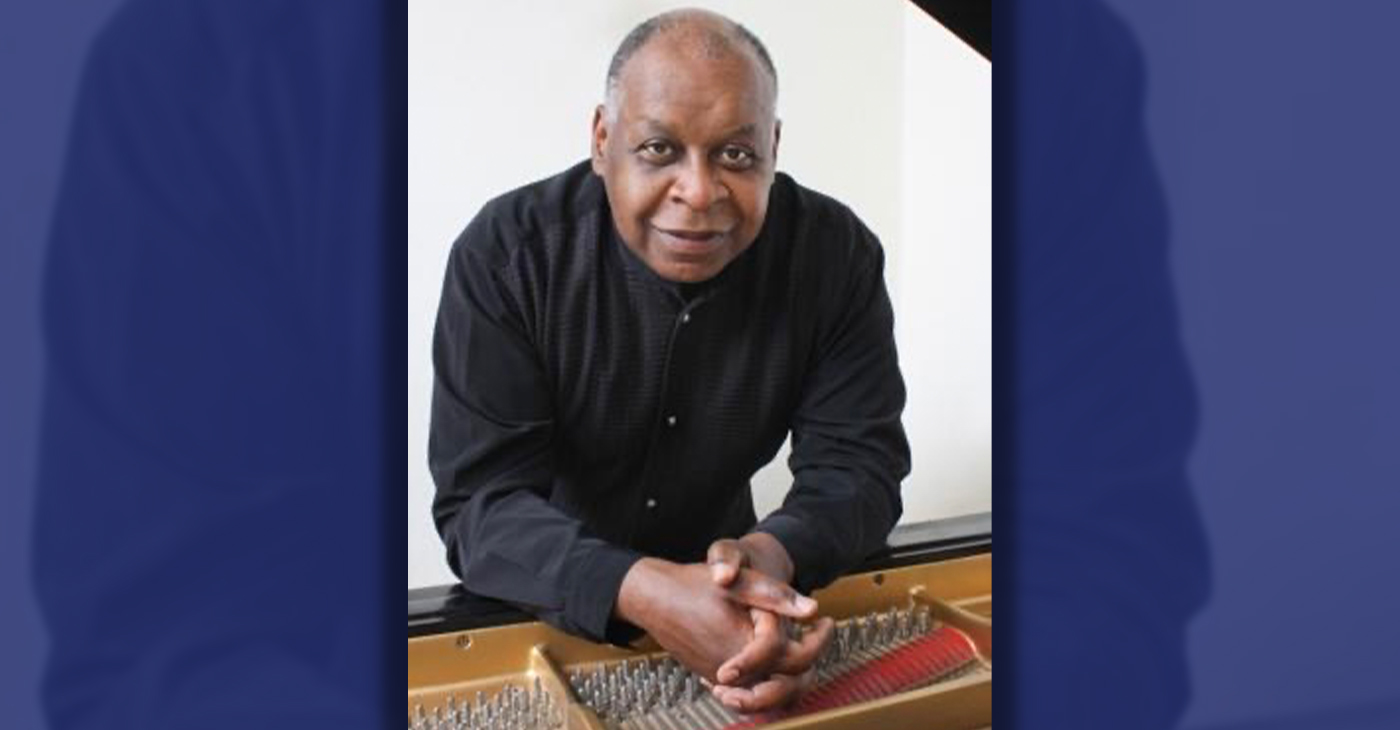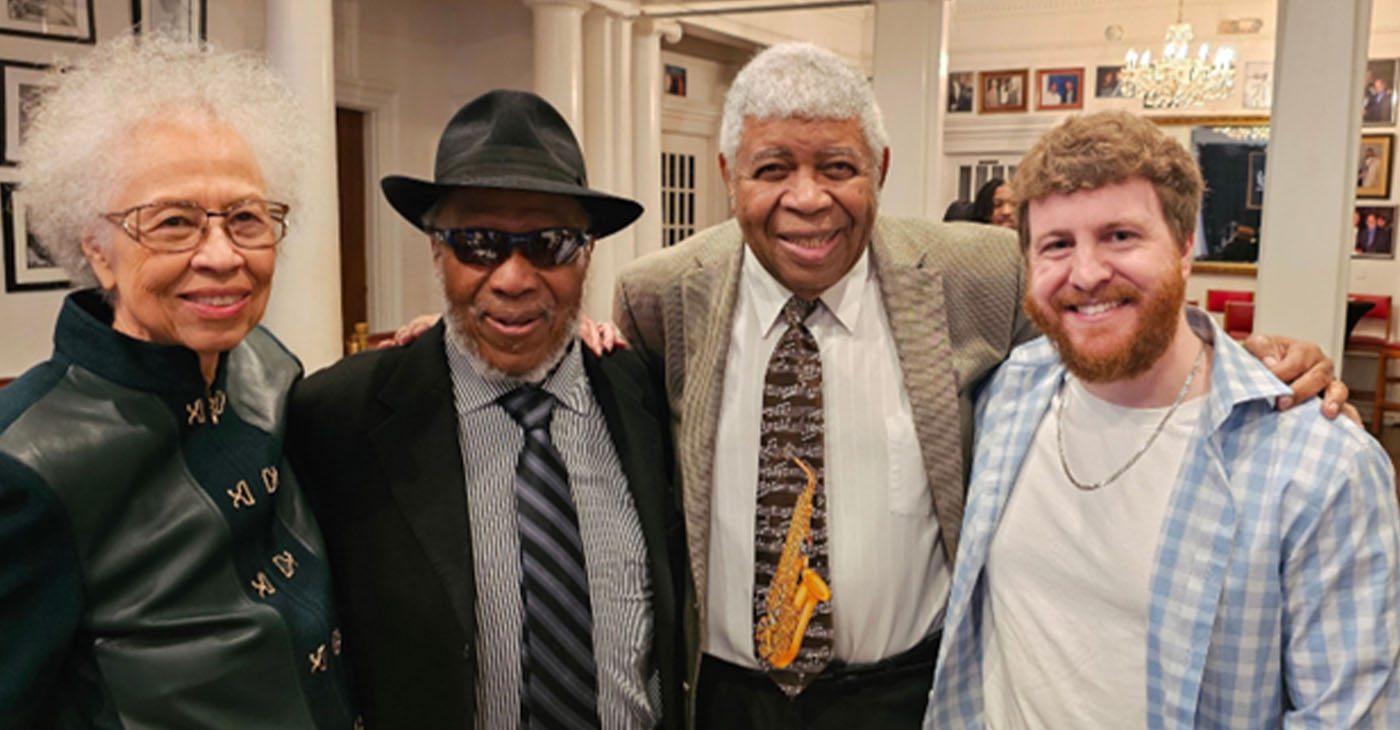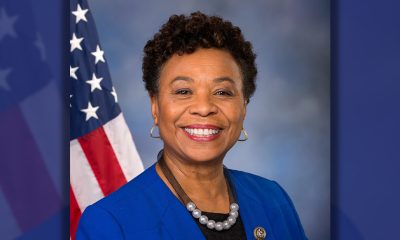Arts and Culture
What Asian American Oscar Victories Mean for All of Us
After the Oscars, when Asian Americans were everywhere on the winners list, from actors, writers, directors, but also makeup artists, and not just in “Everything Everywhere All at Once,” but also in movies like “The Whale,” I turn to the Oakland playwright Ishmael Reed who must be wondering will Asian Americans now go for the Whiteness Prize?

By Emil Guillermo
After the Oscars, when Asian Americans were everywhere on the winners list, from actors, writers, directors, but also makeup artists, and not just in “Everything Everywhere All at Once,” but also in movies like “The Whale,” I turn to the Oakland playwright Ishmael Reed who must be wondering will Asian Americans now go for the Whiteness Prize?
(I consider Asian American to be a generic term, indicating people of Asian descent either living or working not necessarily indicative of their citizenship status.)
I’m in New York as an actor in “The Conductor,” the latest Reed production now off-Broadway (get your in-person or live-streamed tickets here: https://theaterforthenewcity.net/shows/the-conductor-2023/).
I play a brown-skinned Tucker Carlson-type on a faux Fox, and very conservative news network.
That’s how good an actor I am!
As an Asian American sometime-actor, I’m gratified to see Asian American creatives take their historic star turn at the Oscars. Asians have won the Academy Award for best supporting actor before, but never has there been a best actor/actress winner until the Malaysia-born, Hollywood-based Michelle Yeoh last weekend.
There’s something about being a “first.” A “never before.”
But what’s next?
And that’s where Reed’s play got me thinking.
In Reed’s “The Conductor,” Blacks start a new underground railroad to help Indian Americans — not American Indians, but those from the continent of India — escape a wave of xenophobia that is forcing them to flee to Canada.
The main character, columnist Warren Chipp is Reed’s alter ego. When a conservative Indian seeks refuge and asks Chipp why the liberal Chipp is being so nice to him, Chipp reveals his grasp of irony.
“Minorities make alliances with us (Blacks) until their admission to the white club is accepted. This happened to the Jews, the Japanese, the Irish, the Italians and now you guys (Asian Indians).”
It’s just one of the provocative asides in the play, but the historical examples are there.
Says Chipp/Reed: “These groups come running to us when the white man decides to sic mobs on them because of some geopolitical conflict or culture war. Begging us to hide them and save them. And then, when they get an ‘all-clear’ sign, they return to auditioning for whiteness again. Lining up and trampling over each other, asking white people to ‘choose me!’ Some of them even change their names to go Anglo.”
Reed says it’s the root of “Afro-Pessimism.”
What’s that?
It’s a term by Frank Wilderson, as Reed explains, that means Blacks can’t depend upon Blacks’ “junior allies.” Wilderson calls B.S. on intersectionality and says that Blacks “must go it alone.”
After rehearsals and the first four performances, the passages from the play haunt me.
Especially last Sunday. When the Asian Americans were preparing for their Oscar turn, I was off-Broadway living Reed’s play.
Is the Model Minority now back to auditioning for whiteness again?
I hope not. I get what Reed’s saying in his play. But I see the Oscar victory as a win for not just Asian Americans but all BIPOC communities in all their unique narratives.
AAPI stories have a kind of heat now. An independent film about a family with a laundromat dealing with the IRS and the multiverse where people have hotdogs as fingers puts us in a whole new ballgame.
We aren’t so weird after all. We’re of immigrant descent, sure. We’re different, yes. But we’re of the modern world and our stories deal in universal truths.
People flocked to “Everything Everywhere All at Once,” which gave it some cache as an indie project that was making money. Not like “Top Gun” money, but enough to satisfy Hollywood accountants. Once it caught the attention of the Academy looking for diversity, the film was simply recognized for its off-beat ingenuity and its creative weirdness.
I was having lunch in New York’s Chinatown with a lawyer friend of mine, a Chinese American immigrant and also a triple Harvard (College, Law School, and MBA) graduate. My friend surprised me when he said he couldn’t understand the hype about “Everything, Everywhere…”
He called it unwatchable. He liked the movie “Tar.”
I told him maybe it was generational. Just goes to show you that not everyone, not even Asian Americans are on board with “Everything, Everywhere…”
But the huge victory on Sunday makes the film like a Golden Spike in Hollywood. The track is finally connected and open for AAPI creatives bound for glory.
“Everything, Everywhere…” has put everyone in the equation on notice. We have stories to tell that sell, and that people want to see.
Stories that win Oscars.
I see the phenomenon as a rising Asian American film lifts all boats. And with AAPI at just over 6% of the population, I don’t buy the “Afro-Pessimism” idea in his play.
We can’t go it alone. We don’t have the numbers. We need each other.
Like anything worthwhile, it’s going to have to be done together.
Emil Guillermo is a journalist and commentator. See his vlog on www.amok.com And see “The Conductor” in person or live-streamed tickets here: https://theaterforthenewcity.net/shows/the-conductor-2023/
Arts and Culture
Kedrick Armstrong: New Music Director for the Oakland Symphony
The Oakland Symphony Announced Kedrick Armstrong as its Next Music Director. In addition to conducting the orchestra’s public concerts, Armstrong will also actively participate in the Oakland Symphony’s many education and community engagement programs, designed to inspire a love of music in people of all ages.

By Post Staff
The Oakland Symphony Announced Kedrick Armstrong as its Next Music Director.
In addition to conducting the orchestra’s public concerts, Armstrong will also actively participate in the Oakland Symphony’s many education and community engagement programs, designed to inspire a love of music in people of all ages.
Armstrong is the successor to previous music director and Conductor Michael Morgan, who passed away in 2021 after a 30-year tenure at the Symphony.
Armstrong will open the Oakland Symphony 2024-2025 season on October 18.
Armstrong, who is 29 and hails from Georgetown, South Carolina, is currently the creative partner and principal conductor of the Knox-Galesburg Symphony.
The Chicago Tribune has praised Armstrong for his ability to “simply let the score speak for itself.” He enjoys a wide range of repertoire, spanning early music to premiering new works, using his joy and curiosity for all music to cultivate understanding and collaboration within diverse communities.
“I am deeply honored and grateful for the opportunity to serve as the new music director of the Oakland Symphony,” Armstrong said. “As a Black conductor, I find it humbling to stand on the shoulders of both Michael Morgan and Calvin Simmons,” the most recent and the first African American music directors of the Symphony, respectively.
Armstrong led three programs at the Symphony between 2022 and early 2024, which showcased his broad knowledge of the classical repertoire and enthusiasm for spotlighting diverse voices.
On his Oakland Symphony subscription debut on Feb. 16, Armstrong led the world premiere of “Here I Stand: Paul Robeson,” an oratorio by Carlos Simon on a libretto by Dan Harder, commissioned by the Oakland Symphony.
Armstrong was selected unanimously by the Oakland Symphony’s board of directors and musicians after an extensive two-year search. “The search committee was overwhelmed by Kedrick’s scholarship and curiosity about all kinds of music, from classical and jazz to gospel and hip-hop,” said. Dr. Mieko Hatano, executive director of the Oakland Symphony. “We are thrilled to have him join us at the Oakland Symphony.”
Arts and Culture
Faces Around the Bay Dr. Carl Blake, Pianist
Born in Liberty, Missouri, Carl Blake, a virtuoso and respected pianist, made his most recent migration to the East Bay in 1999. One might have seen him performing recently at Noontime Concerts in San Francisco, or at the Piedmont Center for the Arts in Oakland. He is Director of Music at The Church for the Fellowship of All Peoples in San Francisco. He was also co-organizer and collaborative pianist at Herbst Theater for The Majesty of the Spirituals concert in 2022 and has held several church positions in the Bay Area.

By Barbara Fluhrer
Born in Liberty, Missouri, Carl Blake, a virtuoso and respected pianist, made his most recent migration to the East Bay in 1999.
One might have seen him performing recently at Noontime Concerts in San Francisco, or at the Piedmont Center for the Arts in Oakland. He is Director of Music at The Church for the Fellowship of All Peoples in San Francisco. He was also co-organizer and collaborative pianist at Herbst Theater for The Majesty of the Spirituals concert in 2022 and has held several church positions in the Bay Area.
Blake obtained a Bachelor of Music from Boston University and continued post-baccalaureate studies in Jamaica before earning a Master of Arts in Music at San Jose State University. He was the recipient of two Fulbright residencies in Honduras and completed a third residency at the University of St. Petersburg in Russia. He has a Doctor of Musical Arts from Cornell University.
At age 19, Blake, then an undergraduate piano major at Boston University, was “discovered” by Impresario Dr. W. Hazaiah Williams, who is the Founder and Director of Today’s Artists/Four Seasons Arts.
Williams honored Blake by awarding him the first Marian Anderson Young Artist Award. Anderson personally presented the award at the Masonic Auditorium in S.F. Subsequently, Blake was presented by Dr. Williams in his San Francisco debut at The Herbst Theatre. Williams subsidized a year of study abroad for Blake at the Paris Conservatory of Music. Additionally, Williams sponsored Blake’s New York Weill Hall debut, where he has performed twice since. Blake performed several times at the Yachats Music Festival in Oregon.
Blake continues to perform nationally and abroad. His hobbies are reading, baking and travel. He says, “I’m still pumping ivories, as Belgian pianist Jeanne Stark described the disciplined practice of concert piano.”
Arts and Culture
Oakland Jazz Great Offers Master Class as City Declares “John Handy Day”
World-renowned jazz master saxophonist John Handy, a McClymond’s High School graduate, was presented with a Mayor of Oakland Proclamation declaring Feb. 12, as John Handy Day in the city. Handy is most notably known as the featured saxophonist for Charles Mingus on “Goodbye Pork Pie Hat” from the album “Mingus Ah Um” (1959) and on “Hard Work” from his own album “Hard Work” (1976).

By Conway Jones
World-renowned jazz master saxophonist John Handy, a McClymond’s High School graduate, was presented with a Mayor of Oakland Proclamation declaring Feb. 12, as John Handy Day in the city.
Handy is most notably known as the featured saxophonist for Charles Mingus on “Goodbye Pork Pie Hat” from the album “Mingus Ah Um” (1959) and on “Hard Work” from his own album “Hard Work” (1976).
“John Handy is a jazz icon and an inspiration to musicians everywhere,” said Ayo Brame, a 16-year-old Oakland tenor saxophone player who is enrolled at the Oakland School for the Arts.
In celebration of this day, the reception in downtown Oakland at Geoffrey’s Inner Circle was a gathering of artists, young and old, coming together in his honor and celebrating his 91st birthday.
Handy presented a Saxophone Colossus free masterclass for musicians. This class afforded a rare opportunity to learn about the saxophone from an aficionado. The class was free and open to all – saxophonists, vocalists, aficionados, students, and casual listeners.
“As a longtime friend for over 60 years, and fellow musician who has had numerous opportunities to share the stage with John, it has always been a pleasure performing with him and hearing his creative interpretations of the music and his gift of ease inspiring the next generation of jazz musicians,” said Roger Glenn, a multi-instrumentalist.
-

 Activism4 weeks ago
Activism4 weeks agoOakland Post: Week of March 27 – April 2, 2024
-

 #NNPA BlackPress4 weeks ago
#NNPA BlackPress4 weeks agoCOMMENTARY: D.C. Crime Bill Fails to Address Root Causes of Violence and Incarceration
-

 #NNPA BlackPress4 weeks ago
#NNPA BlackPress4 weeks agoFrom Raids to Revelations: The Dark Turn in Sean ‘Diddy’ Combs’ Saga
-

 #NNPA BlackPress4 weeks ago
#NNPA BlackPress4 weeks agoMayor, City Council President React to May 31 Closing of Birmingham-Southern College
-

 #NNPA BlackPress4 weeks ago
#NNPA BlackPress4 weeks agoBaltimore Key Bridge Catastrophe: A City’s Heartbreak and a Nation’s Alarm
-

 #NNPA BlackPress4 weeks ago
#NNPA BlackPress4 weeks agoBaltimore’s Key Bridge Struck by Ship, Collapses into Water
-

 #NNPA BlackPress4 weeks ago
#NNPA BlackPress4 weeks agoBeloved Actor and Activist Louis Cameron Gossett Jr. Dies at 87
-

 Community1 week ago
Community1 week agoFinancial Assistance Bill for Descendants of Enslaved Persons to Help Them Purchase, Own, or Maintain a Home






















































